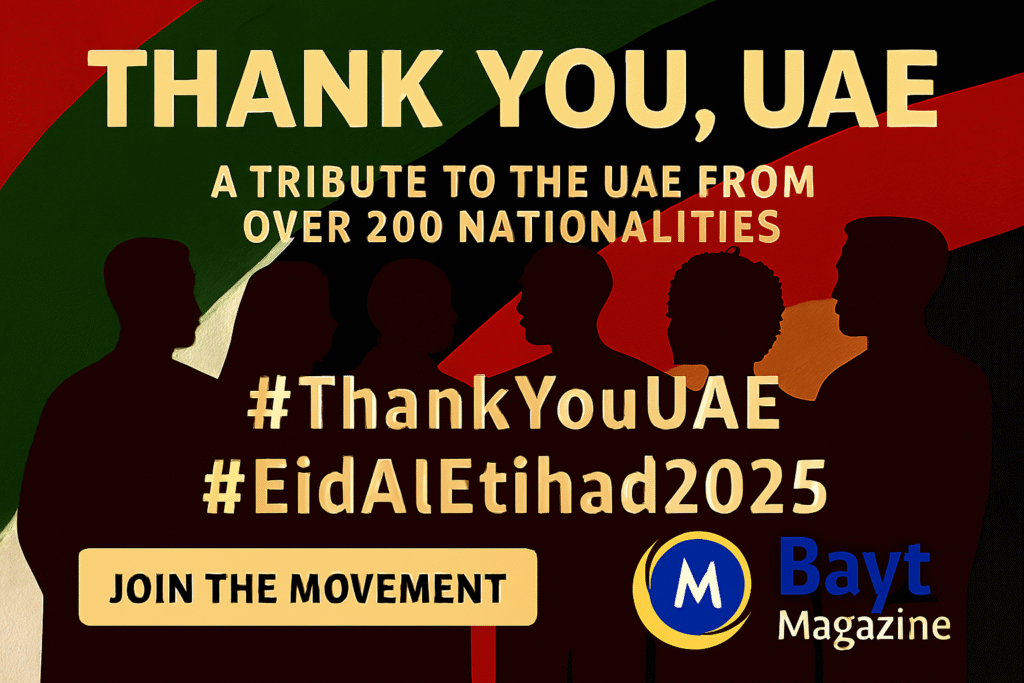Um Adnan was born in 1939, nine years before Israel came into existence. Her life became evidence of Lebanese women’s resilience as she lived through decades of conflict and change. She witnessed the Lebanese Civil War firsthand and survived the 1982 Israeli invasion that took tens of thousands of lives. The two-decade occupation of southern Lebanon became part of her daily reality.
Um Adnan managed to keep her family’s unity and cultural identity strong, even after losing three of her eight children to tragic circumstances. Her family’s home in Chehabiyeh was one of the few buildings that originally stood through the devastating 2006 Israeli assault, which claimed about 1,200 Lebanese lives. But like many displacement stories in the region, military actions later turned her family home into rubble. Still, she left behind a powerful legacy of perseverance.
Um Adnan’s Journey Through Lebanon’s Turbulent History
Um Adnan’s remarkable life story unfolded through Lebanon’s most difficult times. She watched her homeland change dramatically during her youth in pre-Israel Lebanon. The social fabric of Mount Lebanon started to tear as religious tensions emerged.
Born in 1939: The Pre-Israel Years
Um Adnan’s childhood coincided with Lebanon becoming an independent nation. She grew up while the Middle East underwent massive changes. Lebanon’s diverse religious makeup was a vital force in its political development. Lebanese Christians made up most of the population and held more power in the country’s parliament.
Surviving the Lebanese Civil War (1975-1990)
The Lebanese Civil War brought unimaginable hardships to Um Adnan’s family. She lost one of her children to the violence. This devastating conflict took 150,000 lives and forced nearly one million people from their homes. Her strength showed as she kept her family together through the chaos. Foreign powers made the situation more complex by creating shifting alliances that affected Lebanese civilians everywhere.
Enduring the Israeli Invasions
The Israeli invasion of 1982 marked a dark chapter in Um Adnan’s story. Operation “Peace for Galilee” brought more than 40,000 Israeli troops into Lebanon from three directions. This resulted in about 19,000 Lebanese, Syrian, and Palestinian deaths. Um Adnan showed remarkable courage as she lived through these terrible events.
Life During the South Lebanon Occupation (1978-2000)
The Israeli occupation of southern Lebanon tested Um Adnan’s resolve like never before. Her son Hassan joined the Lebanese resistance, which meant constant worry about losing another child. This occupation lasted from 1978 to 2000 and changed life in southern Lebanon completely. Her family faced the harsh reality of life in a war zone. Basic services often failed and civilian buildings became military targets.
Um Adnan showed her steadfast dedication by focusing on daily tasks, tending her garden, and cooking meals. She kept cultural traditions alive and held her family together despite terrible losses. Her story reflects the incredible strength of Lebanese women during these troubled times.
The Quiet Strength of Lebanese Matriarchs
Family honor is the life-blood of Lebanese society. A person’s name and dignity remain their most treasured possessions. Women became heroines in Lebanon’s patriarchal structure as they stepped into roles traditionally held by men. This happened when their male family members fought, faced detention, displacement, or death.
Maintaining Family Unity Despite Loss
Lebanese women worked to soften war’s effects through non-violent peace movements. They organized humanitarian aid and coordinated relief efforts. These women distributed food rations, blankets, clothes, and secured medical treatment for those in need. They also served as mediators between warring factions and protected their families while keeping constructive dialog alive.
Women make up 52% of the 833,391 internally displaced persons in Lebanon as of October 2024. About 50,000 women-headed households face heightened vulnerabilities. Notwithstanding that, these matriarchs continue their vital humanitarian efforts and show remarkable resilience in keeping their families together.
The Role of Hospitality in Preserving Identity
Lebanese culture takes immense pride in its hospitality traditions. People see it as an honor to welcome guests into their homes. This cultural practice helps maintain identity and community bonds during conflicts. “Sahtain,” which means “double your health,” captures the warmth of Lebanese hospitality. It invites others to share meals and fellowship.
The family forms the basic unit in collectivist Lebanese society. It defines reputation, status, and honor. Wealthy relatives help less fortunate family members by sharing assets and providing job opportunities. Women’s rights to education and equal pay have improved. Yet the mother’s role remains central to preserving cultural traditions and family stability.
Lebanese women work to change marriages and home lives through discipleship, discussion groups, and counseling. They build families on values that exceed traditional cultural norms. Their efforts to create support networks and solidarity have proven vital in keeping communities together amid ongoing challenges.
Daily Acts of Resilience That Defined Um Adnan
Um Adnan turned her daily routines into acts of defiance against chaos during decades of conflict. Her strong spirit showed through endless household duties, even as age brought mobility challenges.
Managing a Household in Conflict Zones
Um Adnan’s kitchen became a sanctuary of sustenance during times when food was scarce. She managed to keep a vat of green beans ready for unexpected guests, among other traditional treats. Her commitment to food preparation matched a wider pattern among Lebanese women. They preserved cultural foodways through “Mouneh” – traditional food preservation techniques that became vital for survival.
Raising Children Amid Political Uncertainty
Life demanded extraordinary strength from Um Adnan as she raised eight children during endless conflict. She faced unimaginable pain when she lost three children – one to a car accident, another in the civil war, and a third to an accidental shooting. Yet she created stability for her surviving children. Her son Hassan joined the resistance, which meant living with constant worry, but she managed to keep daily routines that gave her family a sense of normalcy.
Preserving Cultural Traditions Despite Displacement
Um Adnan’s dedication to preserving culture grew stronger as conflict worsened. She chose to focus on keeping traditional practices alive instead of giving in to despair. Her kitchen became more than just a place to cook – it revolutionized into a space where cultural identity lived through traditional dishes. Um Adnan’s culinary traditions connected generations, even when 77% of Lebanese households couldn’t afford food.
Her grace under pressure was remarkable given her life’s path, which included surviving mass killings that took tens of thousands of Lebanese lives. Um Adnan proved stereotypes wrong about Arab Muslim women being weak or oppressed. She showed incredible strength whether she worked in her garden, cooked meals, or guided her grandchildren. These simple daily acts showed that keeping a family together during existential threats took extraordinary courage.
How Um Adnan’s Story Reflects Broader Lebanese Women’s Experiences
South Lebanese women share Um Adnan’s experiences across generations. Their stories paint a picture of strength during ongoing conflicts. Recent data shows more than 520,000 women and girls have left their homes to find safety as of early October 2024.
The Unsung Heroes of South Lebanese Villages
Women have become the backbone of southern Lebanon’s villages through repeated crises. Statistics show about 12,000 displaced families now have women as their heads. These brave mothers and grandmothers run their households under extreme pressure. Many flee with just their important papers and must make tough choices between staying safe or protecting their family homes.
Generational Patterns of Female Resilience
Women’s strength shows through their ways of standing firm and adapting. They take active roles in building peace by organizing aid work and reconciliation events. Women like Ghadeer Houmani help others cope mentally and socially, even while dealing with their own displacement.
The Intersection of Personal Loss and National Trauma
Personal tragedy and national crisis meet to create deep collective wounds. The displaced population includes 11,600 pregnant women. About 4,000 of them will give birth within three months. These mothers-to-be struggle to find proper care and nutrition while living away from home.
Women’s strength shines through:
- Creating safe spaces where others can heal
- Building support programs for displaced children
- Running counseling sessions for families
The Spirit of Social Work Association teams up with UN Women to launch programs. These help women learn new skills and stand on their own feet financially. Women have grown from survivors into changemakers. They prove that keeping families together during life-threatening times takes remarkable courage.
Women lead relief efforts during this crisis. They deliver humanitarian aid and tackle urgent needs like shelter, healthcare, and protection for displaced families. Their work in community mediation helps encourage dialog and rebuild broken communities.
Um Adnan’s story shows evidence of Lebanese women’s extraordinary strength. She kept her family together through daily acts of resilience despite profound personal losses and surviving multiple conflicts. Her dedication to cultural traditions, especially through food and hospitality, showed how Lebanese women turn ordinary routines into powerful acts of resistance.
Women like Um Adnan continue to shape modern Lebanon with their enduring influence. Their quiet strength defies stereotypical portrayals of Middle Eastern women. These remarkable women prove that keeping families united amid existential threats takes extraordinary courage. These matriarchs teach us how protecting cultural identity becomes an act of defiance during conflicts.
Lebanese women lead humanitarian efforts, mediate community disputes and support families. Their vital role helps rebuild fractured societies. Stories like Um Adnan’s remind us that true strength emerges not through grand gestures but through steadfast dedication to family, tradition and community survival.






